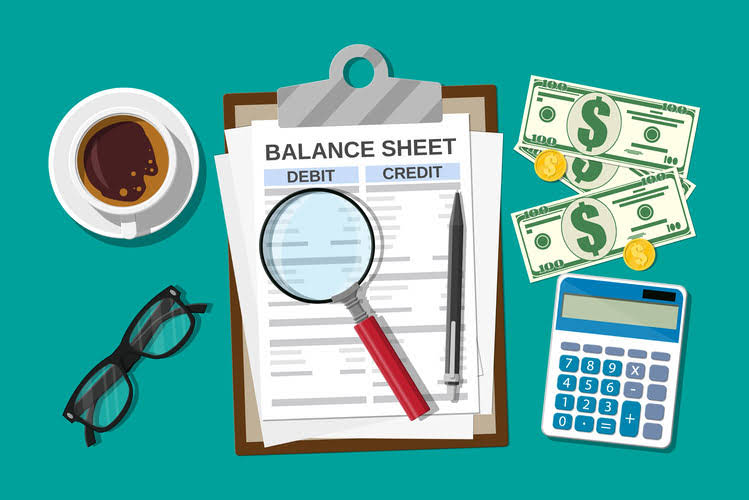Content

They believe in investing in “good advice,” especially in the early days. Talk to your local Chamber of Commerce for a list of member accountants and bookkeepers.
However, as a business grows, it is often more time- and cost-efficient to hire a bookkeeper to handle bookkeeping tasks. Sometimes grasping the difference between bookkeeping and accounting can be tricky. Both work with your finances, both help make your tax reporting a smooth experience.
Extending The Services
Hal also points to OPS (other people’s skills) as a reason to get bookkeeping help sooner than later. The business owner is an expert in their business, and a good bookkeeper is an expert in processes and accounting. It’s worth the money to use OPS to do the things that you might not be good at or enjoy so that you can focus on what’s really important—your business. Bookkeepers provide an essential insight into the financials of the company. They make sure that all financial operations are run smoothly and recorded regularly, and ensure that the tax season isn’t stressful.

Here are five accounting mistakes that can derail growth for small businesses and how to avoid them. This decision is personal and depends on your business needs and objectives.
Which Financial Professional Is Best For Your Business?
If you prefer to make inferences and provide solutions, then you should consider a role as an accountant. Regardless of which you choose to become, you will undoubtedly make a difference in the businesses you work with and serve a crucial and in-demand role. Both require working with numbers, but bookkeepers are much more closely working with numbers.
Bookkeepers now set up the accounting system, review the transactions, prepare financial statements, analyse and advise. Therefore, you’ll find many professionals, such as myself, with Accounting degrees that primarily do “Bookkeeping”. When I’ve held corporate positions, the degree qualified me to be an Accountant. Now that I’m offering my services publicly, I tend towards the term “Bookkeeper” out of respect for my colleagues who have taken the time to get their CPA licenses. CPAs are licensed to Audit and provide Assurance services and are one form of credential for Tax Preparation. Because of this, professional Bookkeepers tend to be the ones to walk with a business owner through the day-to-day of the business and CPAs are consulted for Tax prep and Audit & Assurance once a year or so. FinancePal offers accounting for small businesses so that business owners can get back to handling the other important facets of their business— like growing profits and keeping customers happy.
Cpa Vs Bookkeeper Infographics
As a Virtual CFO, the CPA firm is like a part-time version of a traditional CFO or Chief Financial Officer plus a full Accounting support team. When small businesses start spinning wheels, it is a good time to consider hiring a reputable CPA firm, such as Perpetual CPA, which can provide both Strategic Advice and Virtual CFO services. Expert analysis – An accountant won’t just hand you the numbers at the end of the month.
Work Of The AccountantsAn accountant is a finance professional responsible for recording business transactions on behalf of a firm, reporting the firm’s performance and issuing financial statements. Thus, an accountant plays bookkeeper vs accountant an important role whether it is a small domestic entity or a large multinational company. Most bookkeeping positions do not have specific formal education requirements and instead prioritize past clerical work experience.

Note, they are different than Certified Public Accountants as they have not completed the additional educational and testing requirements necessary for that designation. Indeed is not a career or legal advisor and does not guarantee job interviews or offers. A Master of Public Administration is a degree in public affairs that prepares graduates to serve in executive positions in government and NGOs. If you are proficient and comfortable using mathematics and computing figures, plus punctual, organized, and detail-oriented, it is not hard to learn how to be a bookkeeper.
They are purposely separated so that there is a system of checks and balances. The line between where a bookkeeper role ends and an accountant’s begins is not set in stone. However, the two either work closely together or one person can end up handling both. The bookkeeper is on the ground floor, managing the day-to-day transactions and looking out for changes to the organization or significant financial events that need to be addressed. Working with an accountant regularly ensures that you’ll recognize when you get to the point of needing a bookkeeper.
My Tax Code Is Incorrect
The BLS reported that the median annual salary for accountants and auditors was $73,560 in 2020, with a projected growth of 7% between 2020 and 2030. Accountants, on the other hand, have a higher educational standard they must meet compared with bookkeepers. This holds especially true for those wishing to become CPAs, which requires a bachelor’s degree in accounting as the minimum level of education.
A CPA has a higher level of knowledge than a bookkeeper or tax accountant, and they have a deeper level of understanding regarding what questions need to be asked regarding the financial aspects of your business. I currently use them for two businesses and I am completely satisfied with the level of professional device I receive. If you need help with managing your books and payroll give these guys a shout. Between managing employees, maintaining customer satisfaction, and balancing your personal life, it’s easy to let things slip through the cracks. When it comes to managing finances for your small business, it’s best to have a dual-layer system— and bookkeeping and accounting go hand-in-hand. In order to manage your finances comprehensively, you’ll need to consider the value of both positions. Accountants generally have more education than bookkeepers, but it’s possible that you can get your foot in the door as a bookkeeper and end up working as an accountant.
Dorothy A. Waiksnis – Newton Daily News – Newton Daily News
Dorothy A. Waiksnis – Newton Daily News.
Posted: Tue, 30 Nov 2021 12:49:35 GMT [source]
When starting your business, you can probably do your bookkeeping yourself, provided that your business is still new and small. Always consult an attorney or tax professional regarding your specific legal or tax situation. Look for an accountant with a history of dealing with your type of business (i.e. sole proprietorship, LLC, ecommerce business, etc.). An ecommerce seller, on the other hand, could make many sales per day, and also has to deal with tracking financial items like inventory and sales tax.
An auditor issues a report about the accuracy and reliability of financial statements based on the country’s local operating laws. Business TransactionsA business transaction is the exchange of goods or services for cash with third parties (such as customers, vendors, etc.). The goods involved have monetary and tangible economic value, which may be recorded and presented in the company’s financial statements.
Small Business Accounting Guide
If you need guidance, refer to our small business accounting resource hub for articles to guide you along, or reach out to our team at Forma with any questions you may have. The process of accounting generates reports that convey important financial information. Accounting is the process of recording, interpreting, analysing and reporting of financial information. Bookkeeping is the process of keeping records of the financial affairs of a business. Your bookkeeper’s ultimate job is to keep your data up-to-date and accurate. Bookkeepers do all of the above with the exception of year-end tax returns.
Best online graduate certificates in accounting 2021: Top picks – ZDNet
Best online graduate certificates in accounting 2021: Top picks.
Posted: Tue, 23 Nov 2021 23:25:00 GMT [source]
While these are extremely important roles to fill, few business owners actually understand the difference between bookkeeping and accounting. Traditionally, bookkeepers have managed the day-to-day financial transactions in a business. They have been in charge of recording transactions in the accounting software , reconciling bank statements at the end of the month, and producing preliminary financial statements on a monthly basis. Bookkeepers have also often provided full back-office support, including invoicing clients, paying bills, and processing payroll. Technology has eliminated the data entry that made bookkeeping a primarily clerical task. In response, the various bookkeeping associations are working very hard to redefine the role of the bookkeeper.
The required credentials of a bookkeeper and an accountant are perhaps the largest difference between the two roles. Individuals aren’t required to have any specific certification or formal education to work as a bookkeeper. They do, however, need to have an understanding of basic and key financial topics and also have an eye for accuracy. A bookkeeper can help you manage your financial books by documenting transactions, managing accounts, and recording financial data. Bookkeeping and accounting are two functions which are extremely important for every business organization. While comparing the role of CPA vs bookkeeper, always remember that the latter is only responsible for maintaining financial books and records, not analyzing them. Companies hire bookkeepers on a contract or full-time based on their needs and budget.

Accountants generally must have a degree in accounting or in finance to earn the title. To qualify for the title of an accountant, generally an individual must have a bachelor’s degree in accounting. For those that don’t have a specific degree in accounting, finance degrees are often considered an adequate substitute. Even though they think themselves a full charge bookkeeper, your understanding of the role and theirs may differ – perhaps in a crucial area.
Bookkeeper Vs Accountant Comparative Table
A CPA makes 10 to 15 percent higher income than an accountant who is not certified. In North Carolina, for example, you need a bachelor’s degree with at least 30 hours of accounting-related courses or 20 hours of graduate accounting courses. Using forecasting and modeling they provide scenario analysis to develop strategies to ensure the company’s success. Because bookkeepers are the source of the original data entry, they must understand how to code each transaction. In most cases, private companies do not pay more than the Big Four for young accountants with little experience. Accountants and bookkeepers work with numbers and financial data all day long.
Using the financial statements prepared by the bookkeeper, accountants work on strategic planning with their clients, providing valuable insight into strategies that could help business owners grow their companies. Bookkeepers usually work in offices or at their clients’ places of business. They may need to work with a team of accountants, auditors, or management staff to achieve their goals.
It’s important to have separation of duties to ensure confidence in the financial records. In essence, they are responsible for both the current financial condition as well as the company’s financial future. In short, accountants deal with regular upkeep and reconciliation of the accounts. Accountants are the front-line people as far as the data and numbers are concerned.
Depending on the size of your business and the number of transactions that are completed, the complexity of your ledger can vary from spreadsheets to accounting software. As a small business owner, having a good grasp of your business financials is key—even if you’ve hired an accountant. It depends on the knowledge, a lot of bookkeepers have more experience and knowledge as compared to accountants. This is a human tendency, a lot of people think, accountants are more intelligent and knowledgeable, but in my view, it depends on knowledge. Your bookkeeper keeps your records in order and their work affects how the accountant will report and consult on your business. Cost – Hiring an accountant is far more expensive than hiring a bookkeeper. If you’re in need of just basic record keeping, not financial advice, you’re better off hiring a bookkeeper.
- There are some cases in which a high school diploma will suffice for either position.
- If your goal is to move upwards within a company and have more power, then accounting will offer a better position to do so.
- The primary functions of an accountant include analyzing financial statements, completing income tax returns, and helping business owners understand all the tax and financial regulations that apply to their company.
- Neither bookkeeping nor accounting should be considered better or worse than the other.
Accountants, though not formally required to do so, traditionally acquire their CPA certification and a master’s degree. However, if your business transactions are tricky, and you need someone more credible than an accountant, choose a CPA. Another deciding factor is that only a CPA has the authority to represent if the IRS decides to knock on your door. A bookkeeper is also limited by licensing which a Certified Public Accountant has for the issuing of audited statements. Companies need these commissioned documents to fulfill regulations for permits and licenses or when dealing with other financial institutions such as banks. An accountant can be considered a bookkeeper, but a bookkeeper cannot be an accountant without proper certification.
Can you teach yourself bookkeeping?
Yes, Bookkeeping can be self-taught, ideally through a reputable course. There are many online courses for self-teaching. … But having a Bookkeeping qualification will help you understand Bookkeeping and also help land a Bookkeeping job.
Bookkeepers and accountants sometimes do the same work, but have a different skill set. In general, a bookkeeper’s role is to record transactions and keep you financially organized, while accountants provide consultation, analysis, and are more qualified to advise on tax matters. While full charge bookkeepers are not CPAs, they can help prepare monthly and quarterly taxes. Their returns get submitted to your CPA for review, to get tax advice, and process tax returns. Reducing the time your CPA needs to spend working on your taxes should translate to a significant cost savings.
Author: David Ringstrom


